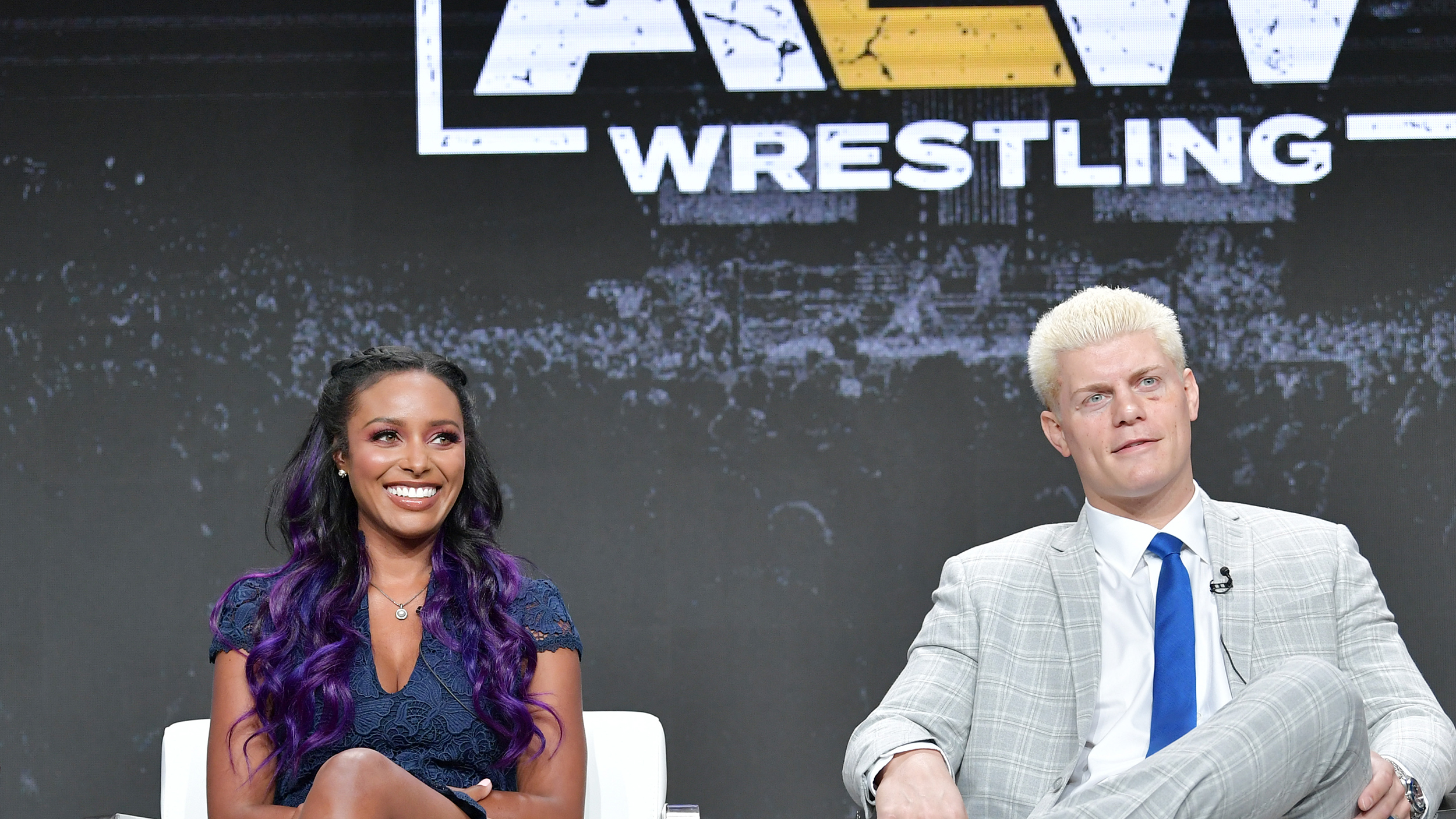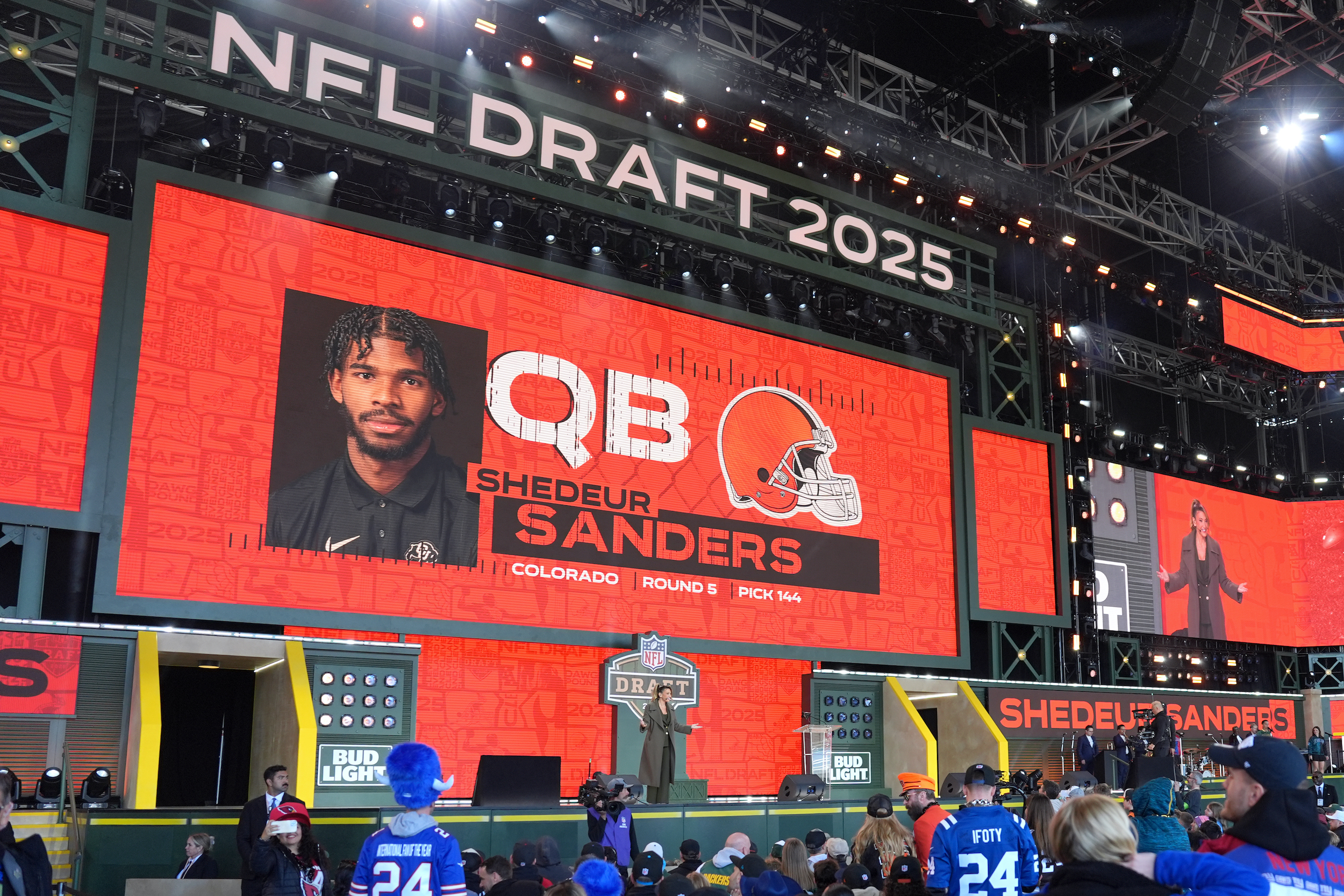Wrestling is a shadowy business. By that, I mean that it is and has always been shady, but also because so much of the intrigue takes place away from the bright lights of the television broadcasts, with only reports from both trusted and highly un-trusted sources serving to illuminate what is or is not happening backstage. When one of those bits of conjecture-heavy shadowplay finds its way into the light, as with the shocking news this week that Cody Rhodes was leaving All Elite Wrestling, it's natural to wonder what happened, and what comes next. For the most part, wondering is all there is to do—wrestling tends to keep its secrets, and wrestling fans may never know exactly what led one of AEW's founding members and Executive Vice Presidents to leave the company just over two years after it began. But for once it's easy to see the future. In this case, it looks brighter for both entities involved.
First, some context. Cody Rhodes was part of the initial AEW announcement, alongside Chris Jericho, Kenny Omega, and the Young Bucks. He was also one of the central figures as the upstart promotion, backed with Tony Khan's seemingly infinite funds, got off the ground. AEW's rise has been both imperfect and a godsend for wrestling fans that craved an alternative to WWE. For his part, Rhodes started off hot, notching a great match with his brother Dustin at the first AEW pay-per-view, before transitioning into a hot feud with Jericho for the title.
The introduction of a secondary title, the TNT Championship, gave Rhodes something to do after he, in storyline, said he would never challenge for the big belt again after losing to Jericho. He had some great matches with that belt, full of blood and glory, but the steam from his run wore off once he lost it a second time, to Darby Allin. That's when the so-called "Codyverse" kicked into gear: a series of storylines based around his friends and family that would go on to consume entirely too much television time while delivering only a handful of highlights.
Along the way, AEW changed, too. The moment that seems in retrospect to signal the end for Rhodes at the company was when CM Punk debuted. That addition was followed quickly by Adam Cole and Bryan Danielson; suddenly, Rhodes had no home anywhere near the top of the card or, crucially, the top of payroll. If reports from Wade Keller and others are to be believed, Rhodes departing AEW and returning to WWE came down to a question of standing: he wanted more booking power, more TV time, and more money.
Khan reportedly stood his ground, and it's hard to blame the, shall we say, eccentric billionaire at the top of AEW for that decision. Rhodes is a big name, and has been a crucial part of AEW's origin story, but the company had passed him by. To play off of a phrase from wrestling's last ratings war, Rhodes simply didn't put as many butts in the seats as the other big names. And so, soon after a report came out from Sean Ross Sapp that Rhodes was on his way out, he was.
Thank you Cody and Brandi Rhodes pic.twitter.com/tkDvVpnrrE
— All Elite Wrestling (@AEW) February 15, 2022
Here's where I must wade into some murky prediction waters. I think that both AEW and Rhodes will find this to be a mutually beneficial breakup, and not just because the partnership had gotten stale.
Let's start with AEW, because that's simpler. If anything, the company has too many talented people on the roster for its three hours of weekly TV and its YouTube shows. That is a good problem to have, but it's a problem all the same, especially when those big-name stars take up so much time. Losing Rhodes hurts in the short term, but it will open up a lot of TV time to introduce and grow new stars, or just to give current storylines more time to flesh out. A good example: Wednesday night's Dynamite, the first without Rhodes, featured a lengthy, violent no-disqualification match between Thunder Rosa and Mercedes Martinez. The women's division has always been AEW's weakest point, but if some of the Codyverse time ends up allocated to have meaty matches like this, well, that's a good trade on several levels.
The split also helps AEW creatively. If there's one thing the company has tried to do, and often succeeded in doing, it's long-term storytelling. Think of Hangman Adam Page's long chase for the AEW World Championship, or Jurassic Express's climb from fun oddity to tag champs. Rhodes was good at this sort of thing, too, and his early storylines spanned months and generally paid off well. He had fallen into a rut of his own making, though; while the general vibe of Codyverse was consistent, the stories were often unfocused and convoluted, up until the moment they were abandoned. And if fans don't have to sit through another segment like the one that his wife, Brandi Rhodes, had with Dan Lambert a few weeks back, then that's a huge positive. (Brandi Rhodes is also leaving AEW, although whether she's headed to WWE or away from wrestling is unclear at the moment.)
For Cody Rhodes, this is more of a gamble. There's comfort in the familiar waters of WWE, but he has also been swamped with bad creative decisions there before. Stardust, anyone? That being said, the Rhodes that is returning "home" isn't the same one that left, and WWE is also not what it was back then. I'd wager good money, if maybe not as much as Rhodes is about to get from WWE, that he will be just fine. Vince McMahon is nothing if not spiteful, but he also just stole away one of his top competitor's biggest names. It's safe to assume that Rhodes will get a marquee spot in WWE, which is seemingly guaranteed for those that leave and come back. Drew McIntyre won a world championship at WrestleMania after working the indies in between WWE stints, and Bobby Lashley will likely enter this year's biggest show as a champion. There's a pattern, here.
Rhodes could slot in nicely into that upper card slot, particularly after the part-timers that come around for WrestleMania every year take off again. It would be shocking if McMahon waits long to smash his new shiny toy against Roman Reigns, for example. Though going to WWE sacrifices the booking power that he had in AEW, Rhodes will at least feel wanted, which he reportedly no longer felt at the company he helped create.
This breakup could backfire on both sides, to be fair. Rhodes had AEW crowds hating him by the end, and turning him into a mega-heel could have been money. That's a missed opportunity, but AEW probably has enough talent to run against Hangman in the near future to make up for it. (It's a matter of when, not if, CM Punk turns heel and challenges for the title.) Rhodes could find that being under McMahon again is nothing but misery, as it was last time. His new boss is a stubborn 76-year-old billionaire, after all.
But for the first time in twenty years, McMahon is on the ropes. His shows have stagnated creatively, and AEW has been a much stronger foe than he probably expected. Stealing away Rhodes, who is in his prime as both an athlete and a big name, is inarguably a coup. It would be among the dumber things in a long career of doing dumb things if McMahon were to squander the potential of this move out of spite, or habit. It's more likely that Rhodes finds what he felt was missing in AEW—a lot of money, and a higher stature than the crowded field atop an upstart promotion. He had to leave his baby to do it, but Rhodes grabbed the metaphorical brass ring and secured the non-metaphorical bag, and now he gets his chance to prove that AEW was foolish to let him go. Whether he succeeds or not is to be seen, but AEW will probably be fine either way. As breakups go, this one might not qualify as amicable, but it sure seems within reach that everyone will end up happier for it.






